
Arts & Culture
An explosion of radical ideas
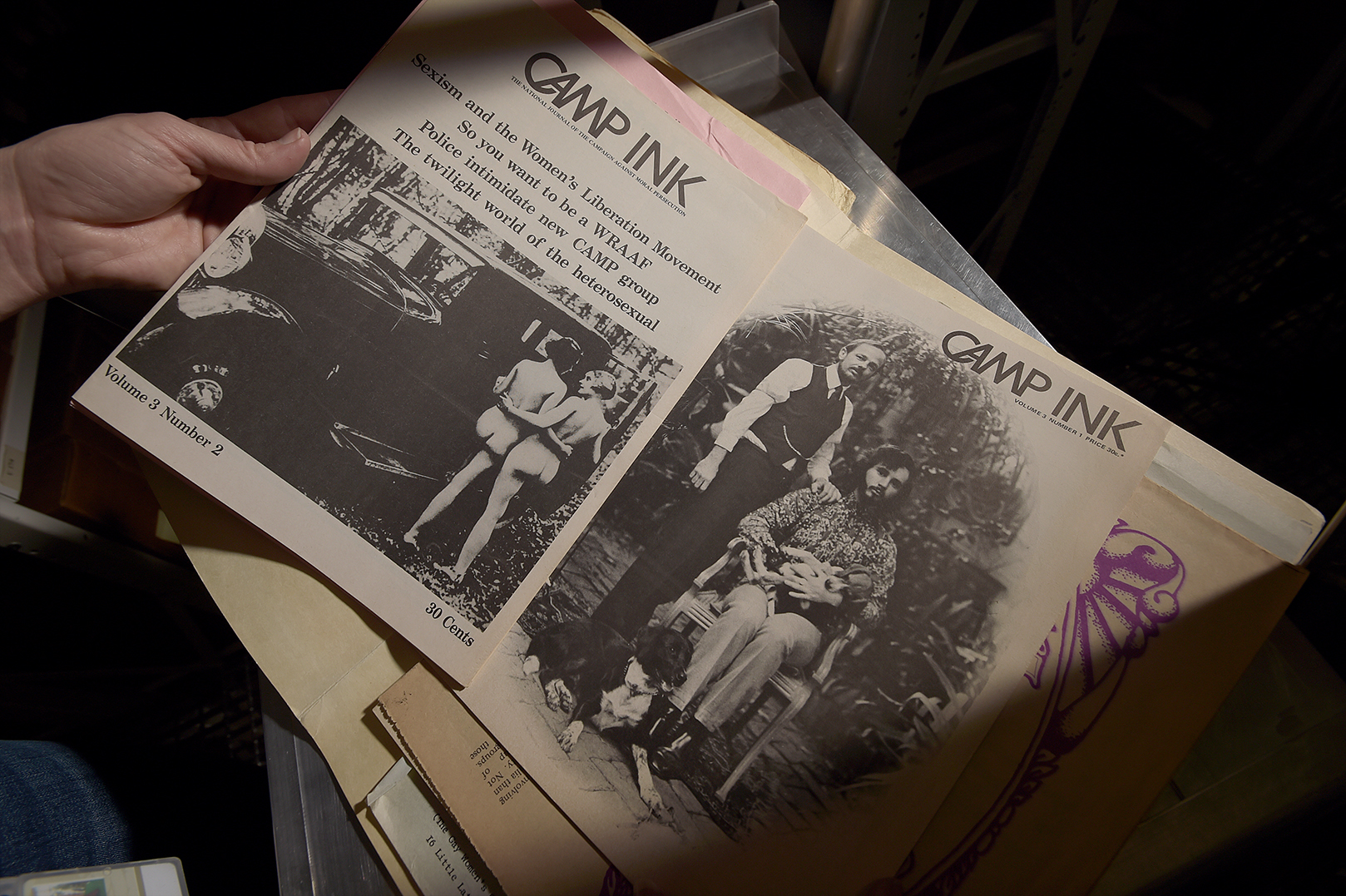
The history of the LGBTI community’s ongoing struggle for equality is preserved in the archives, providing a crucial window into the attitudes of the past and the poignant stories that drove social change
Published 24 September 2017
In 1972 male homosexuality was illegal across Australia, and both men and women could be arrested for same sex kissing in public.
That same year, the local arm of the Gay Liberation Front at the University of Melbourne circulated a letter to every department, faculty and college asking them about their attitudes toward homosexuality and whether they had any discriminatory policies against the gay community. The responses, held in the University’s archives, range from the formal and heartfelt, to the dismissive and unexpected, but they are unanimous in opposing discrimination.
The University’s society of car enthusiasts responded by asking whether the Gay Liberation Front had an opinion on rally car production. The local Community Aid Abroad organisation wrote back addressing the group as “Dear Gay Lib People” but go on to say they had passed a motion condemning discrimination.
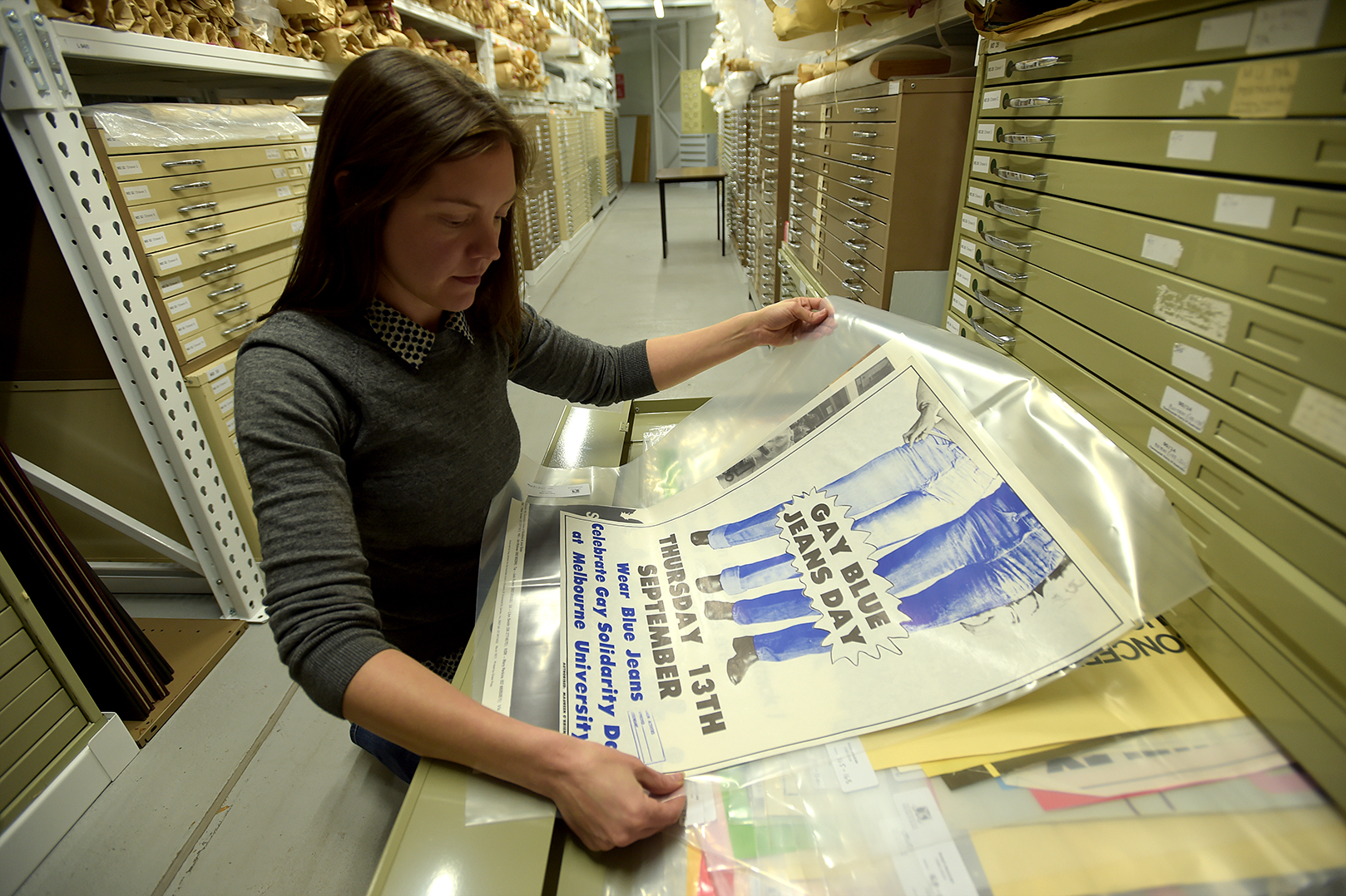
A number of the faculties and schools simply say the private lives of staff and students are none of their business, while the Faculty of Agriculture notes “preferences and antipathies are factors that cannot be controlled by any policy and it is an individual right to be attracted or repelled by homosexuals or heterosexuals.”
But the response that most resonates when you look through the typed papers is that of the School of Architecture and Planning. It replies that homosexuals “should simply be a normal part of society and accepted as such.”
It is 45 years since the Faculty of Architecture and Planning expressed what many in modern Australia think today, but the country is only now actively considering whether to extend to same sex couples the equal right to participate in a cultural and socially accepted institution like marriage.
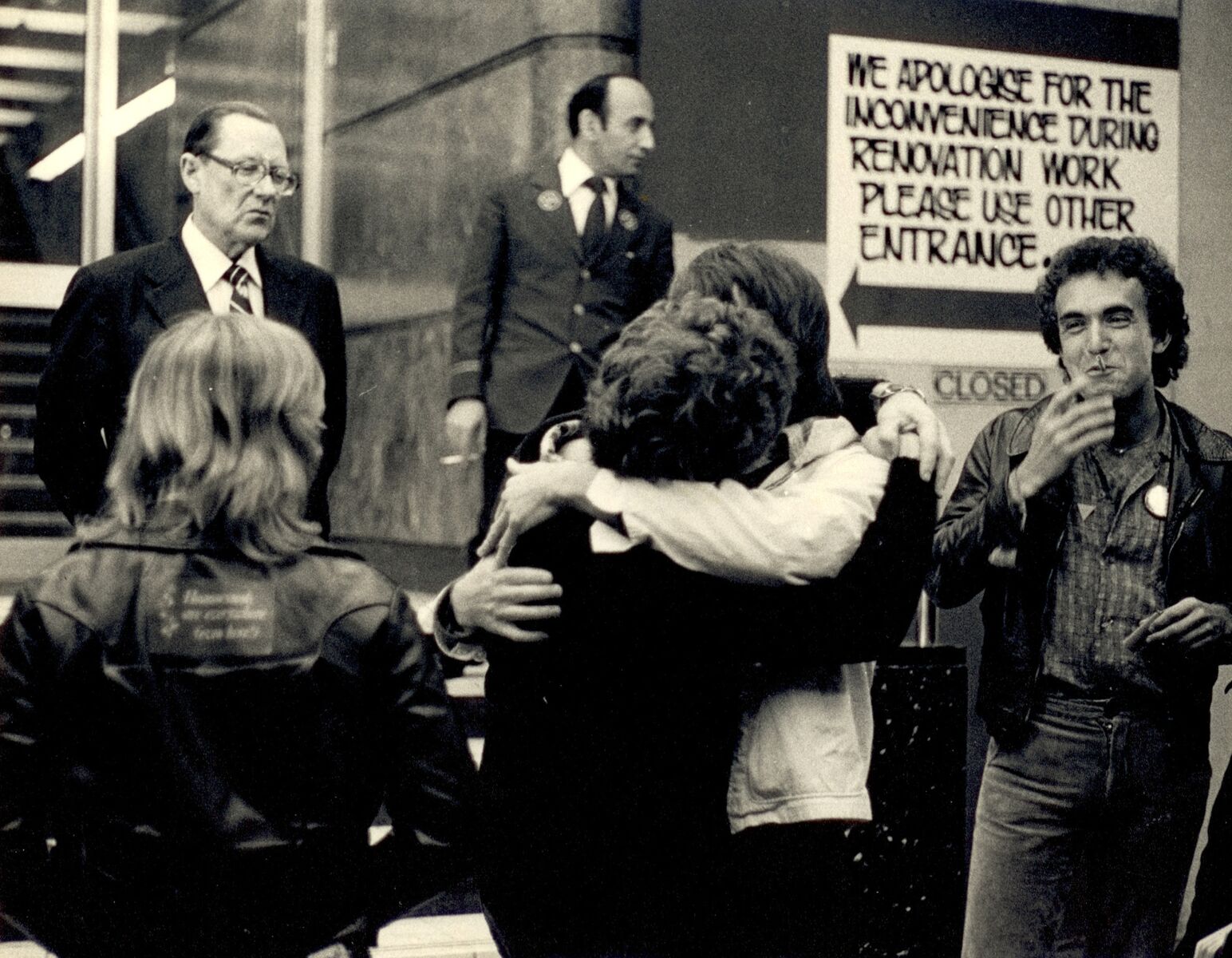
“It is striking how supportive some of the replies are,” says historian Dr Graham Willet. “What it shows is that while issues around the rights and equality of marginalised groups can be raised and supported, it can take a long period of struggle before the issues resonate enough with wider society to allow change.”
Dr Willet and fellow historian Dr Kathy Sport have been combing through the University of Melbourne Archives as part of an Engagement Grant to help shed light on the long history of LGBTI movements.

Arts & Culture
An explosion of radical ideas
One of the most important archives held at the university is that of the Victorian Women’s Liberation and Lesbian Feminist Archives (VWLLFA) dating back to the 1960s and 70s, which is still maintained at the University by the community that created it. It is in the VWLLFA that Dr Sport has come across stories of personal struggle like that of trainee-teacher Penny Short. In 1974 Ms Short lost her teacher’s scholarship after being judged “medically unfit” simply because she came out as a lesbian and published a lesbian poem. Despite protests, including a march in Sydney by a thousand university students, the decision was never reversed.
“We only have this archive because of the commitment and perseverance of individuals going back more than 40 years who had the foresight and awareness to collect their own history knowing that as a marginalised group they risked having their stories excluded from history,” says Dr Sport.
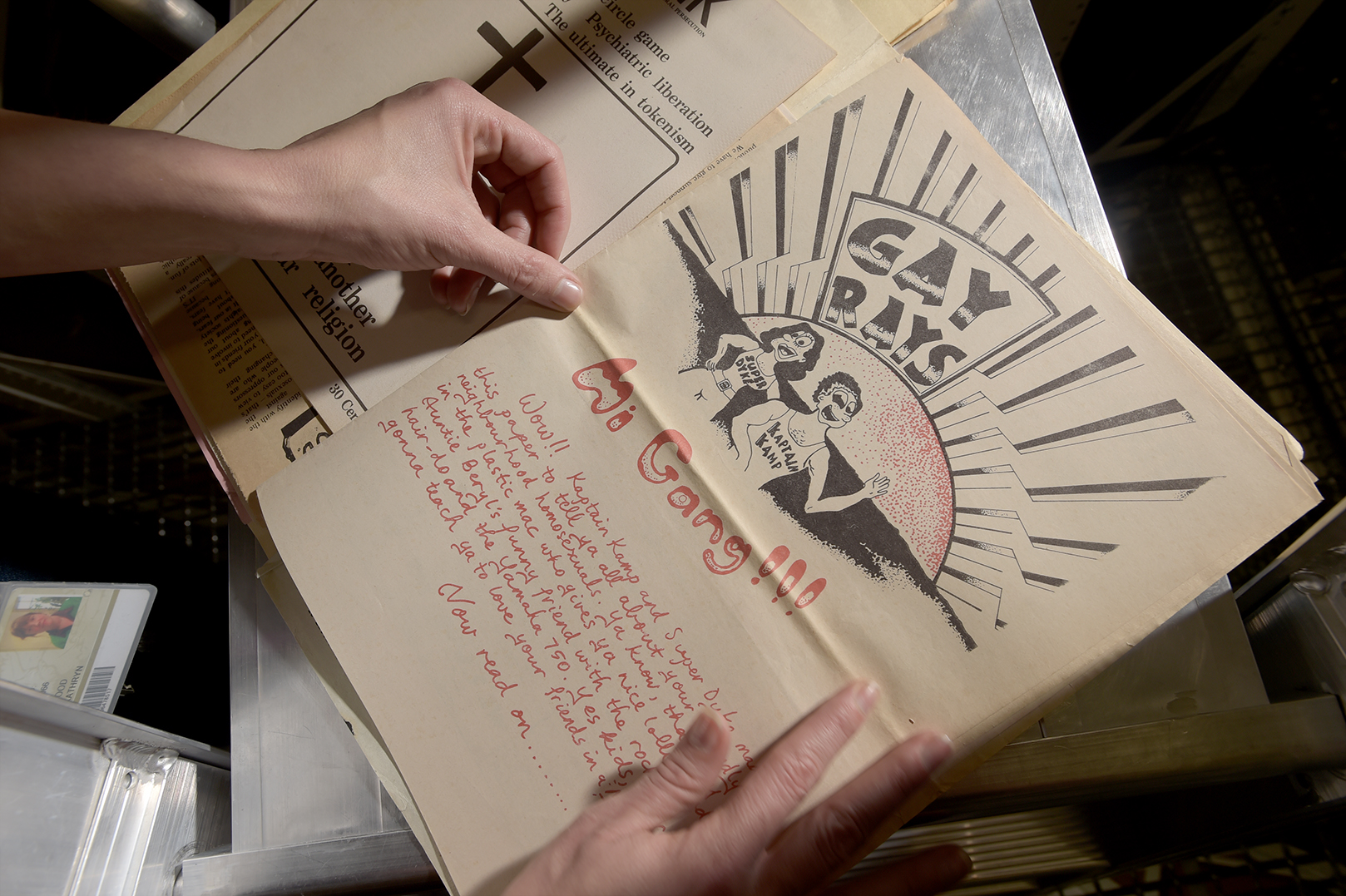
The University of Melbourne Archives includes collections such as the 14-box archive of the late Julian Phillips, a law lecturer at the university who, as chair of Victoria’s Equal Opportunities Advisory Council (EOAC) during the 1970s, played a crucial role in the eventual decriminalisation of male homosexuality in Victoria in 1980.
Mr Phillips is a key player in another story told by the archives, that of University of Melbourne PhD student Terry Stokes. Mr Stokes had been arrested in 1979 after a policeman saw him kiss his boyfriend, Darren Turner, outside the Woolshed Bar on Collins Street in Melbourne. He was fined $75 in default of 7 days in gaol. But when the case hit the newspapers his University residence, Graduate House, moved to evict him.

Arts & Culture
Censorship and celebration at La Mama
The move sparked protests including a mass “kiss-in” by about hundred men and women outside the Woolshed, and a stop-work meeting by University Cafeteria workers. Mr Phillips addressed the Graduate House Board on Mr Stokes’ behalf and the student was eventually reinstated. But Mr Stokes never returned to Graduate House because as a condition of his appeal he had been required to move elsewhere.
Amongst the Phillips’ papers Dr Willett found one of the earliest records of the transsexual community officially lobbying for change. ‘Transsexual is the word the community used in all these discussions rather than the now more accepted “trans community” which includes both those who identify a different gender and those who have physically transitioned to a different gender.
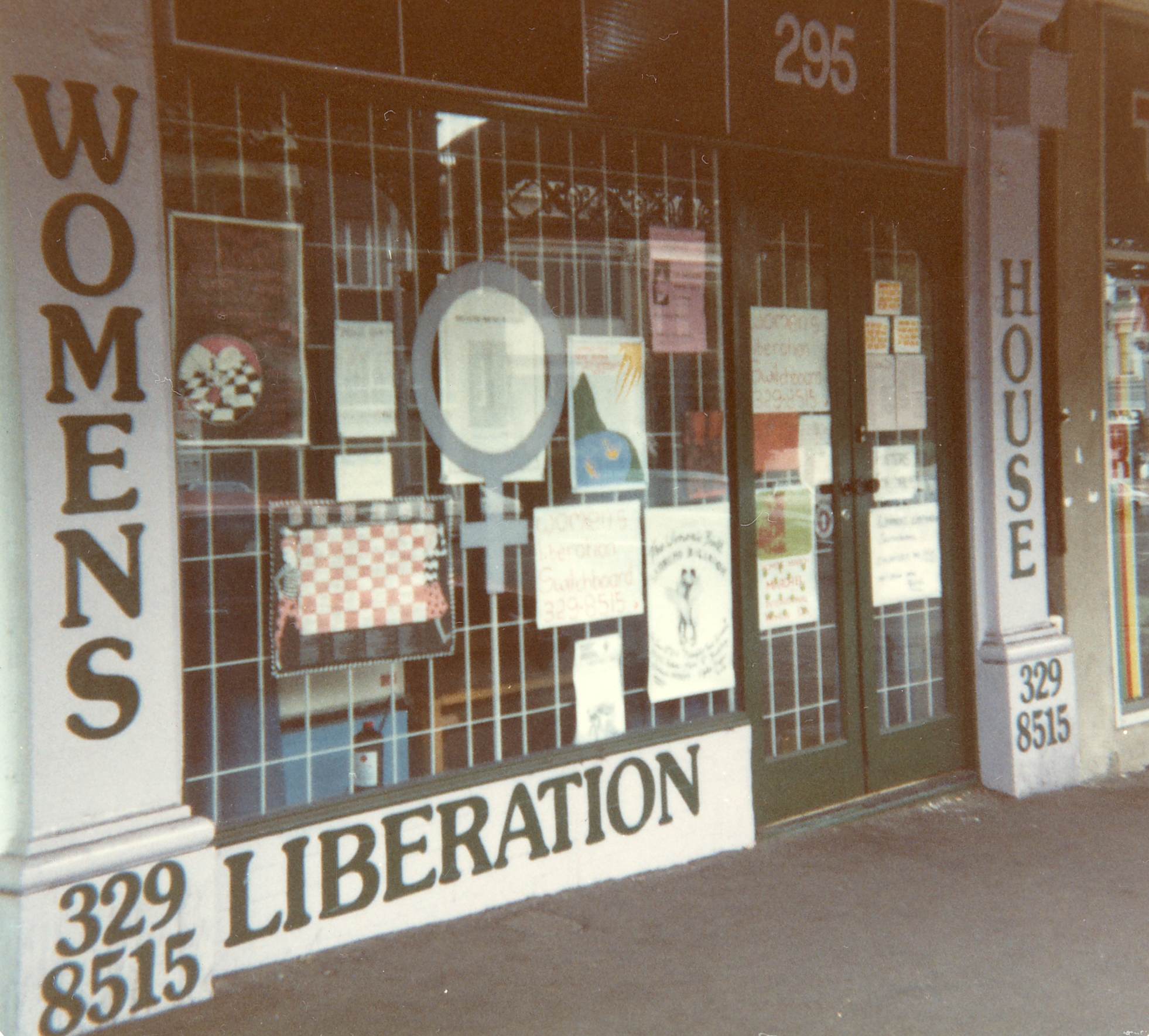
The records show that in 1983 the EOAC met with three members of the Victorian Transsexual Coalition that was lobbying the committee to allow their community to change the gender on their official documents like birth and marriage certificates. They also raised concerns about discrimination against them when it came to social security benefits and allegations of sexual assault.
“It was a complete surprise to find such early evidence of an organised group of people wanting to talk to the committee about trans issues,” says Dr Willett.
Indeed, the letterhead of the Coalition suggests it was backed by doctors, scientists, some church groups, and even the then Federal Department of Employment and Youth Affairs. “Clearly government welfare-orientated agencies were at this time getting involved in the issue.”

Arts & Culture
Aboriginal voices in the afterlife of photographs
And it appears the EOAC took the approach very seriously at the time. The issue is discussed in various minutes and letters and a medical briefing paper is consulted. While nothing appears to have immediately come from the approach, Dr Willett says it is an important, but previously unknown, incident in the history of the trans community.
“It is only when transsexuals themselves start making an issue of their conditions by approaching the committee that official attention is then very quickly given to them. And if they failed in 1983, it was because their issues didn’t yet have enough resonance to break through at that time.”
And yet even now, while the rights of trans people are being increasingly recognised, Dr Willett notes that official bureaucracy is still struggling to treat them equally. He notes that Greens Senator Janet Rice’s husband transitioned to become Penny Whetton, but in order for the couple to stay married Ms Whetton can’t change her gender on their marriage certificate because same sex marriage isn’t allowed.
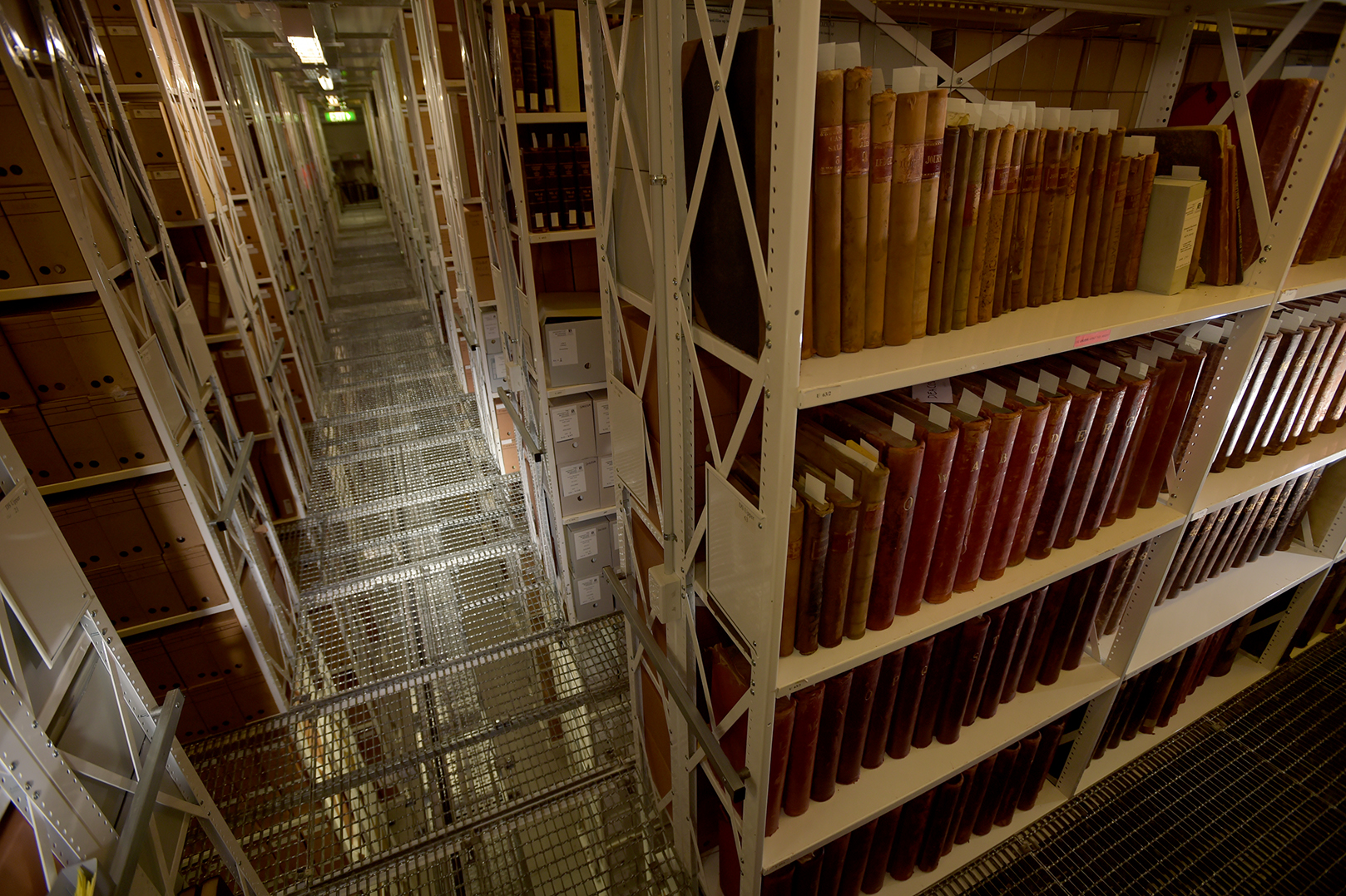
According to University of Melbourne Access and Outreach Archivist Katie Wood, it is in being able to understand how and why society changes that archives are so significant, especially for marginalised groups whose histories end up being ignored or told for them.
“We are collecting the records that people and communities created for themselves, and that is particularly important for marginalised groups,” says Ms Wood.
“Such archives are an important counterbalance to State archives that focus on collecting government records that are about communities rather than created by communities.”
The Australian Society of Archivists “Diverse Worlds” National Conference is on at the University of Melbourne 25-28 September, 2017.
Banner image: Picture: Selected documents from the University of Melbourne Archives. Picture: Paul Burston